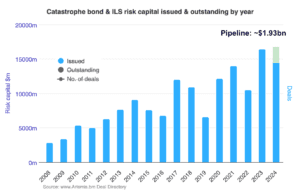How To Get the Most Savings Out of Your Health Insurance – GOBankingRates

©Shutterstock.com
The only thing worse than medical stress is money stress — and at the start of each new year, you get to endure both at the same time during the annual ritual of enrolling for health insurance. No one likes to do it, but few things are more consequential to your physical and financial health.
GOBankingRates asked the experts how to get the biggest bang for your buck not only when shopping for insurance, but when leveraging it to get the care you need.
See: Here’s How Much More Expensive Healthcare Is in the US Than 5 Other Countries
Find: How To Refinance a Mortgage
Learn the Language
Every field has its jargon, and if you want to navigate the health care system, you’ll have to learn the bizarre and often-frustrating vocabulary of the industry’s gatekeepers.
“One of the best ways to save money on health insurance is to become familiar with all of the confusing terms: deductible, co-pay, premium, out-of-pocket maximum and co-insurance,” said Alex Kronk, author of “A Pocket Guide to Medicare Advantage — 2022” and creator of The Health Plan Critic. “Understanding these will help you navigate each plan as you make your decision.”
You can find a complete glossary of terms at Healthcare.gov/glossary.
Learn: As Healthcare Costs Rise, Some Workers Cut Retirement Savings
Get Everyone Under One Policy
You’ll save money in most cases by unifying everyone in your household under a single policy.
“Use a floater policy,” said Nick Schrader, an insurance agent with Texas General Insurance. “This policy covers you, your spouse and two of your dependents. You will be paying one policy for a family. This will save you more money than paying for individual policies.”
Consider Using a Health Insurance Broker
When shopping for insurance, the options can be overwhelming — with so many choices and so many variables, how could anyone know if they truly got the best plan at the best rate?
One way is to farm out the task to people who do it all day.
“You may not be able to find the most suitable insurance plan with the best price,” said Francis Locknear, founder of the money-saving site TheCostGuys.com. “The market is flooded with hundreds of choices. Choosing the right health insurance might not be an easy task. This is why it’s most advisable that you have a health insurance broker. A broker will help you find the most suitable policy for you. They will also help stay within your budget without compromising your needs.”
Read: 10 Companies That Offer Health Insurance to Part-Time Employees
Understand the Metal Categories
Health Insurance Marketplace plans fall into four tiers — bronze, silver, gold, or platinum. Bronze plans are the cheapest, but you pay the most when you require care — 40% of the total cost. With platinum plans, the insurance company pays 90% of the cost of care, but the monthly premiums are much higher. In between are silver and gold, where the splits are 70/30 and 80/20, respectively.
“Choosing which level of protection you need is a personal decision that should be made based on lifestyle and health,” said Fran Majidi of SmartFinancial Insurance. “Overall, the majority of Americans opt for a silver tier health insurance plan. If you’re not sure what’s right for you, think about how often you visited a doctor last year. If it was one or two times, chances are you’d be wasting money on a platinum plan. But if on the off chance that you became gravely ill, or had a debilitating accident, you would be saving lots of money. Makes sense, right? The trick is to feel out where you fall into this tier system.”
Look Beyond the Marketplace
The Health Insurance Marketplace is often the cheapest place to buy health insurance — but not always.
“Most consumers don’t know that the Health Insurance Marketplace (Obamacare) isn’t the only place to purchase individual health plans,” said Judy Bezler, principal/independent agent of Judy Bezler Insurance. “If you don’t qualify for a premium tax credit, Health Insurance Marketplace plans can be costly. An independent health insurance agent can propose other health plans that cost less than unsubsidized Marketplace health plans.”
Also, open enrollment and special enrollment periods apply only to the marketplace.
“You can purchase other types of health plans 12 months of the year,” said Bezler.
Take a Look: 5 Things To Negotiate at Your Job Other Than Salary
Consider a High-Deductible Account With an HSA
Beyond the marketplace and the private insurance market, there is a third alternative that isn’t right for everyone, but that offers unique benefits, tax savings, and flexibility in retirement planning.
“Look at enrolling in a high-deductible health plan (HDHP),” said Jessica DuBois, an employee benefits consultant at Risk Strategies. “These plans are often the least expensive and allow for you to save up for out-of-pocket health care costs through a triple-tax advantaged Health Savings Account (HSA). If you enroll in an HDHP, you will have to meet your deductible before benefits apply so you will want to contribute as much as you can to the HSA. Don’t worry about spending the HSA dollars by the end of the year — the account belongs to you and can be rolled over year to year.”
If You Have a High Deductible, Pay Cash and Negotiate
For many Americans, health care costs a fortune even with coverage.
“Millions continue to go without insurance or choose not to use their insurance for routine care because deductibles are so high,” said Michael Botta, Ph.D., a health cost expert who assisted the White House with the creation of Obamacare and the co-founder of the healthcare marketplace Sesame. “It’s important to remember that in-network rates aren’t always good. Often, cash pricing for services can be negotiated at substantially lower rates than even what insurers have arranged.”
Also, get a second opinion — on both cost and care.
“Most insurance policies do cover the cost of a second opinion provider appointment,” said Sean Fox, president of Freedom Debt Relief. “But check your policy first.”
More From GOBankingRates
About the Author
Andrew Lisa has been writing professionally since 2001. An award-winning writer, Andrew was formerly one of the youngest nationally distributed columnists for the largest newspaper syndicate in the country, the Gannett News Service. He worked as the business section editor for amNewYork, the most widely distributed newspaper in Manhattan, and worked as a copy editor for TheStreet.com, a financial publication in the heart of Wall Street’s investment community in New York City.




